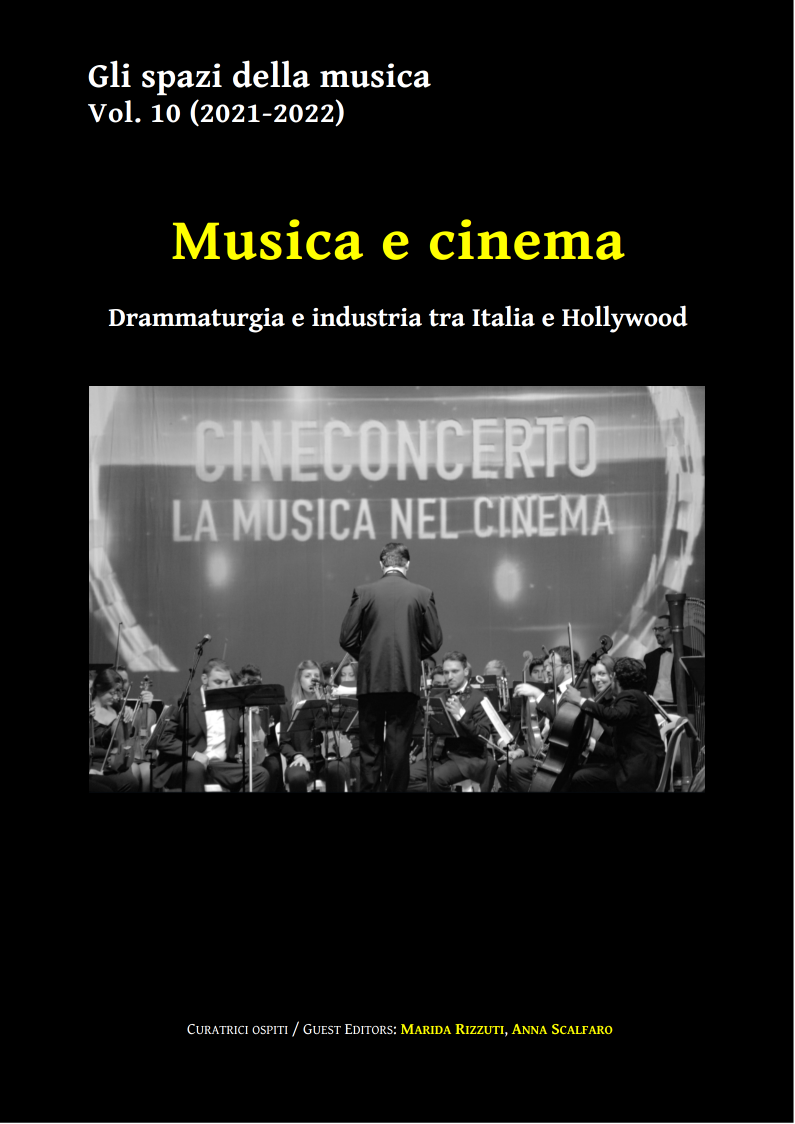Sinergie generazionali. La musica nei film dei "nuovi comici" degli anni '80
Abstract
The article addresses the role of music in the films of the "new Italian comedians" who arrived in the early 1980s, after their success in theater and television, to the role of film directors. Thanks to the crisis in Italian cinema, producers invest in these actors and authors, transforming them into directors with the support of screenwriters, assistant directors, tutors and supervisors. In many cases these are successful films that sometimes compete with the international blockbusters at the national box office. The article focuses attention to the launch (1980-1983) and emancipation/consolidation (1984-1989) phases of the new comedians as directors. Some of them reached international consecration in the following decade. In addition to the musical choices of the individual films, the article addresses the individual parables of the film directors considered (Carlo Verdone, Massimo Troisi, Roberto Benigni, Alessandro Benvenuti, Francesco Nuti). Among the options used, three stand out: the synergy with singer-songwriters emerged during the 1970s (Paolo Conte, Pino Daniele, Antonello Venditti) and emergent rock bands (Stadio), the direct participation of the director-actors in the creation of the music (Benvenuti, Nuti), and the use of new generation film composers, closer to the field of singer-songwriters (Fabio Liberatori, Pino Donaggio, Evan Lurie). Rarer is the involvement Italian specialized composers (Ennio Morricone for Verdone), according to the tradition of film music, or the use of large compilation soundtracks (Verdone again). The new comedians consider all these musical options in dialogue with their audience, taking important steps in unexpected directions.
Keywords: Italian film music, Italian singer-songwriters, Italian rock bands, Italian cinema of the new comedians, Italian 1980s actors, generational aspects
Downloads
Published
How to Cite
Issue
Section
License

This work is provided under the terms of the Creative Commons license Attribution - Noncommercial - No Derivative Works 3.0 Unported. The authors maintains all the the rights of the articles published in «Gli spazi della musica», included the publication rights.



